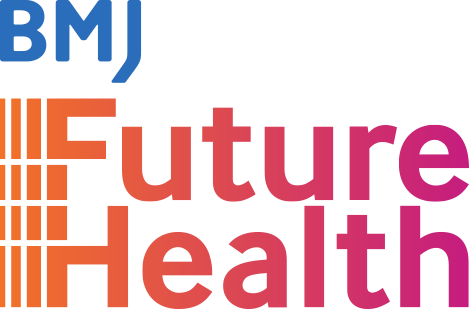Problem Masterclass: Help us shape the future of healthcare
We believe the best advances in health come from a true understanding of the challenges faced by patients, health professionals and the wider system at the point of need - or preferably before. This year we are running a 'Call for Problems' where anyone can submit the pain points, obstacles and complications they faced in our current healthcare system, and our experts have selected a number of scenarios to feature in this dynamic and interactive problem clinic.
Select the problem you are most interested in from the list below, join a table discussion with the submitter and an expert relevant to the field, and begin to co-create some potential solutions together! We know these problems will not be solved in a day, but hope to start interesting conversations that will continue beyond the event and in to real world practical outcomes in the future
Here is a selection of the problems that you can participate in:
- There's a lack of data about care that takes place in peoples homes.
Community nursing operates in a "data dark zone" where operational insights are invisible, preventing evidence-based care optimization and wasting thousands of hours daily on avoidable coordination inefficiencies.
Community contributor: Ell Clarke, Medical Director, Heim - It's really difficult to work out what we need from smart new hospital buildings while we also move care closer into homes.
Recent outputs Darzi anticipated long term/ annual plan we are moving towards more integration, left shift, the use of tech to support . New hospital sizing and smart hospital scenarios.
Community contributor: Dale Travis, Director of Turnaround, North West Anglia NHS Foundation Trust - We don't diagnose urinary tract infections easily or early enough.
Millions of women suffer recurrent UTIs, thrush and BV. We lack tools for early diagnosis or identifying personal triggers, leaving infections untreated, unprevented, and women unheard, frustrated, and repeatedly unwell.
Community contributors:
Isabella Sandak-Lewin, CEO/Founder, spHlash
Hugo Escavabaja, COO, spHlash - Maternity staff training is ineffective.
Outdated training in NHS maternity services is ineffective, expensive and contributes to safety failures and maternal inequalities. We need evidence-based, scalable solutions that actually work for staff and women.
Community contributor: Andrew Darby-Smith, NHS Clinical Entrepreneur, Founder, Upskill Health - Primary bone cancer is diagnosed late too often.
Primary Bone Cancer affects 560 yearly, often misdiagnosed and lacks understanding. Diagnosis is delayed and the data is limited, both impacting care. Improved digital systems and adoption may enhance outcomes.
Community contributor: Silvia Kraft, Policy and Awareness Officer, Bone Cancer Research Trust - Pulse oximetry accuracy is worse for black and brown skin.
Regulated pulse oximeters may show reassuring oxygen readings when the patient has dangerously low arterial oxygen requiring treatment. This inaccuracy is even worse for people with brown or black skin.
Community contributor: Nick Gompertz, CEO & Founder, EarSwitch Ltd - People with acquired brain injury need help with memory and cognition.
People with brain injuries lack accessible, effective digital tools to support memory and cognition, leading to preventable dependence, poor recovery, and exclusion from education, work, and daily life.
Community contributor: Sarah Rudebeck, Senior Clinical Psychologist, Recallify - There is a poor leadership culture in NHS emergency departments.
Leadership and culture face issues like hierarchy, poor communication, change resistance, burnout, and limited psychological safety factors that undermine collaboration, adaptability, staff morale, and continuous innovation in care delivery.
Community contributor: Liyah Sharma, Registered Nurse, NHS - The gap between surgeons' awareness of AI and willingness to adopt is too big.
Surveying general surgeons' perceptions and utilisation of artificial intelligence in healthcare, highlighting attitudes, adoption levels, and challenges within University Hospitals of Leicester NHS Trust.
Community contributor: Hasan Asfour, Academic Clinical Fellow (ACF) ST3 Trainee in General Surgery, University Hospitals of Leicester NHS Trust


